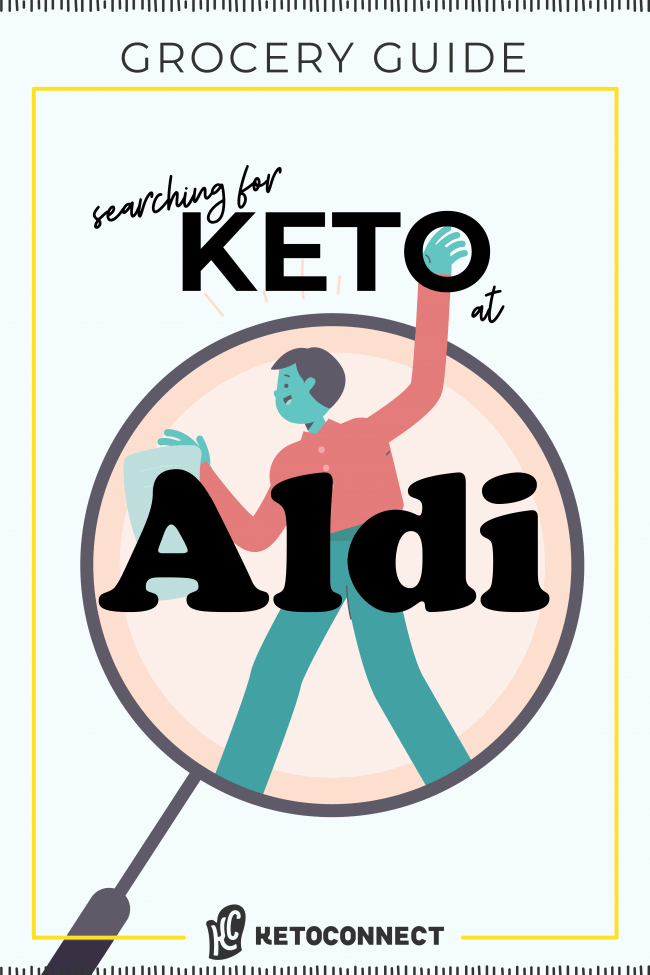The keto diet is one of the most popular diets right now. Those who follow the keto diet report weight loss, reduced blood sugar, and many other health benefits.
With all of these great benefits in mind, you have finally taken the plunge and started the keto diet. Now, all of a sudden, you are feeling tired and rundown. You may find yourself asking, “Why am I exhausted on the keto diet?”
Everyone seems to be thriving, while you can’t seem to beat the fatigue. The good news is, fatigue associated with the keto diet is usually short-lived.
Let’s dive in and see if the keto diet is the culprit of your fatigue, common reasons for being tired on keto, and how long symptoms typically last.

Can the ketogenic diet cause extreme fatigue?
The keto diet is a high-fat, low-carb diet. As you transition from your regular eating patterns to a ketogenic diet, you will remove starchy foods, including chips, bread, and sugary snacks. You will replace these starches with healthy fats like avocado, nuts, and oils.
By removing starch from your diet, your body begins to use both dietary and body fat for fuel instead of carbs. The time period between this transition can be quite rough for some.
Rest assured, most of the time, fatigue on the keto diet isn’t related to anything serious and can be solved with a better understanding of how the diet works.
If your fatigue seems to linger and has caused you to re-think “going keto,” there may be other causes that are worth looking into. Let’s take a look at some common causes of fatigue on the keto diet.
Causes of extreme fatigue on the keto diet
Keto Flu
On a standard diet, we usually eat at least 150-200 grams of carbohydrates per day. With the ketogenic diet, our carb intake is reduced to under 20 grams. This can come as a shock to our brain.
As we transition from using carbs to ketones as fuel, it often takes time for our brains to fully adapt to using ketones for fuel. During this transition, we may experience the keto flu.
Common symptoms of the keto flu may include headache, fatigue, and irritability.
The good news is, the keto flu is temporary, and symptoms usually subside within the first week as your body adjusts.
Inadequate calorie intake
According to research, we may burn an additional 300 calories on very low carbohydrate diets like the keto diet.
In addition, as you increase fat consumption and your body is in ketosis, your appetite will naturally decrease leading to less calorie consumption. This makes keto great for fat loss and can help you lose weight quickly, but it can lead to an extreme calorie deficit.
Being in a large calorie deficit for extended periods of time can throw your body into starvation mode. This can lead to short-term symptoms like fatigue and headaches as well as long-term symptoms like metabolic damage.
A healthy calorie deficit of 500 calories per day is recommended for sustainable weight loss. If you experience weight loss of over 1.5-2 pounds per week, you should re-adjust your macros and boost your calorie consumption.
To maintain keto long-term, it is essential to provide your body with enough calories to avoid burnout, binges, and feeling tired.
Inadequate fat intake
When following any low-carb or keto diet where your body relies on fat as its primary fuel source, it is essential to be sure you are eating enough fat for adequate energy production.
It can be challenging for those new to the keto diet to get adjusted to eating more fat. After all, we have spent most of our lives being told that fat will make us fat.
But a keto diet lacking in healthy fats can result in low energy levels and make you feel downright crummy. A general rule of thumb for fat intake is to be sure at least 70% of total calories come from fat.
Here are some healthy foods that are high in fat:
- Nuts/seeds
- Grass-fed butter
- Avocados
- Olive oil
- Full-fat Greek yogurt
If you have trouble including fat or it doesn’t sit right with your taste buds, consider adding supplements like MCT oil to boost your calories from fat.
Dehydration
When we eat moderate to high carbohydrate diets, our bodies convert excess carbs to glycogen that become stored and saved for energy. Glycogen holds on to water and can be the reason as to why you may feel bloated after a high-carb meal.
As we transition to ketosis or using ketones for energy production our bodies use up remaining glycogen stores for energy, resulting in excess water loss and frequent urination. Sudden weight loss is also common due to the amount of water loss.
Proper hydration is essential on the ketogenic diet. This especially holds true for the first several weeks while your body is in the keto-adaptation phase and releasing extra water.
Ketones naturally deplete your body from the water and can lead to dehydration, lethargy, and cravings for carbs and sugar.

Electrolyte Imbalances
When you lose water on the keto diet, you will also lose electrolytes like potassium, magnesium, and sodium. An improper balance of these electrolytes can lead to muscle cramps, headaches, and fatigue.
Be sure to eat plenty of electrolyte-rich foods. Some examples of keto-friendly foods that are high in magnesium and potassium include:
- Avocados
- Almonds
- Kale
- Tomatoes
Getting enough sodium in our diet isn’t usually too challenging because we can simply add more table salt to our meals. However, if you find it difficult to eat foods rich in potassium and magnesium, you should consider supplements.
Not following a healthy lifestyle
With all of the “keto-friendly” junk food lining the shelves of grocery stores these days, it can be confusing to choose healthy snacks. A good rule of thumb is to always eat whole foods whenever possible.
It can be difficult to always keep whole food snacks on hand if you are frequently on the go. But it’s best to strive to keep healthy food on hand to maintain satiety without filling our bodies with junk that can lead to fatigue.
It is also essential to meet your macro goals to fuel your body and maintain optimal health and energy while your body is burning fat.
We’ve already mentioned fat, but protein is another macronutrient we need to prevent tiredness and fatigue on keto.
Protein intake should account for around 20% of your total calorie consumption and come from healthy sources like bone broth, steak, and chicken. It’s usually not hard to hit our protein goals, but you can always add in a high-quality protein supplement if you find it difficult to meet your protein needs.
Finally, always include exercise and adequate sleep as a part of a healthy lifestyle to prevent feeling sluggish and improve overall health.
Here you can find a guide on what is grounding and its benefits!
How long does keto fatigue last?
The duration of fatigue depends on the underlying cause. If it’s the keto flu, you will likely have complete symptom relief within a week or two once your body adjusts to using ketones for energy.
If your fatigue is related to other causes like dehydration, lack of fat and protein consumption, or inadequate calorie intake, you must readjust your diet to properly fuel your body to regain energy levels.
Final Takeaway
The keto diet has promising results if followed properly. In the beginning, the period of tiredness from the keto flu may be unavoidable for some, but side effects usually do not last over two weeks.
Feeling tired long after starting the keto diet is typically related to other causes like dehydration, inadequate nutrient intake, and sleep deprivation.
If you aren’t able to hit your macro goals or find it difficult to consume electrolyte-rich foods, you should consider adding supplements to your diet.
Still have questions? Comment below and we’ll do our best to help!

Written by
Matt Gaedke
Matt is a former college basketball player turned computer engineer who discovered his passion for health and nutrition after cutting sugar from his diet in 2016. That year he founded KetoConnect with Megha in order to share their ketogenic lifestyle through recipes, videos, and educational content. Matt is always seeking to grow and try new things, a passion he shares with his wife and two amazing sons.


Leave a Comment